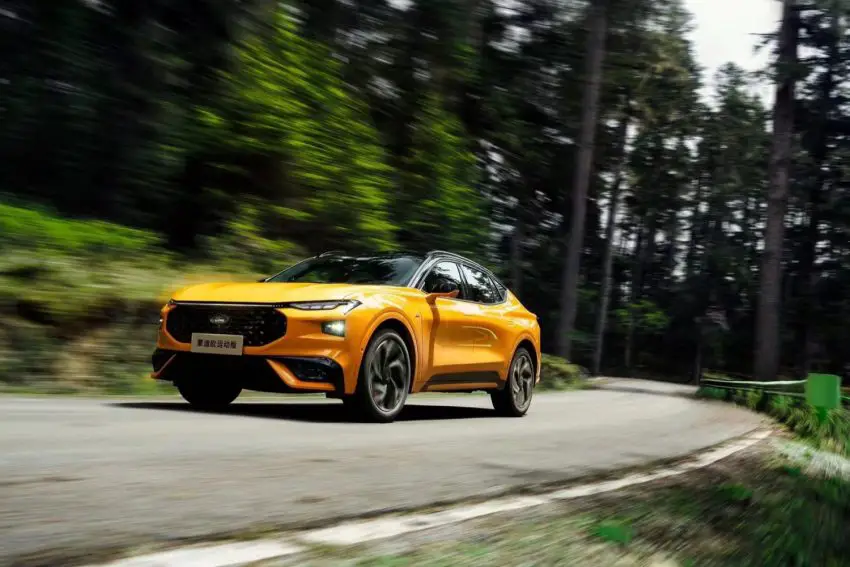Automakers Face Headwinds In China: Case Studies Of BMW And Porsche

Table of Contents
Intensifying Competition from Domestic Brands
The rise of Chinese electric vehicle (EV) manufacturers represents a major China auto market headwind. Brands like BYD, NIO, and Xpeng are aggressively challenging established international players. Their success stems from a potent combination of factors:
- Aggressive pricing strategies from domestic brands: Chinese manufacturers often offer comparable features at significantly lower price points than their international counterparts, making them highly attractive to price-sensitive consumers.
- Rapid technological advancements in Chinese EV technology: Domestic brands are rapidly innovating in battery technology, autonomous driving features, and connected car services, frequently surpassing established players in specific areas. This technological prowess is a key driver of their market share gains.
- Strong brand loyalty amongst Chinese consumers towards domestic brands: Patriotism and a growing preference for supporting local businesses play a significant role in the increasing popularity of Chinese auto brands.
- Government support for domestic automakers: Chinese government policies, including subsidies and preferential treatment, provide a significant advantage to domestic automakers, furthering their competitive edge. This creates substantial China auto market headwinds for foreign players.
Shifting Consumer Preferences and Demand
Chinese consumer preferences are rapidly evolving, creating another significant China auto market headwind. The focus is shifting away from traditional internal combustion engine (ICE) vehicles towards electrified options and vehicles packed with advanced technology:
- Growing preference for electric and hybrid vehicles: Driven by government incentives and environmental awareness, the demand for EVs and hybrids is surging, forcing automakers to rapidly electrify their portfolios.
- Increased demand for features like digital cockpits and advanced connectivity: Chinese consumers expect seamless connectivity, sophisticated infotainment systems, and advanced driver-assistance systems (ADAS), features increasingly prioritized over traditional luxury aspects.
- Focus on personalized experiences and customization options: Tailoring vehicle features and services to individual customer preferences is increasingly important in the Chinese market.
- The influence of social media and online reviews on purchase decisions: Digital platforms and online reviews heavily influence consumer choices, making online reputation management crucial for automakers.
BMW's Response to China Market Headwinds
BMW is actively responding to the China auto market headwinds through a multi-pronged strategy:
- Investment in local production and R&D facilities: BMW has significantly increased its investment in local manufacturing and research and development to cater better to the specific needs of the Chinese market.
- Introduction of locally-designed and produced models catering to specific Chinese consumer tastes: BMW is developing models specifically tailored to the preferences of Chinese consumers, focusing on features and design elements that resonate with the local market.
- Focus on expanding its electric vehicle lineup in the Chinese market: BMW is aggressively expanding its range of electric vehicles to capitalize on the growing demand for EVs in China.
- Strengthening its dealer network and customer service infrastructure: Improving customer service and expanding its dealer network is essential to gaining and retaining customer loyalty in a competitive market.
Porsche's Approach to Navigating the Challenges
Porsche, while focusing on its premium positioning, is also adapting to the evolving China auto market headwinds:
- Maintaining brand exclusivity and prestige: Porsche continues to emphasize its brand heritage and exclusivity to maintain its appeal amongst affluent Chinese consumers.
- Focus on high-performance electric vehicles and plug-in hybrids: Porsche is investing in high-performance electric vehicles and plug-in hybrid models to attract environmentally conscious consumers while preserving its performance image.
- Emphasis on personalized customer experiences and luxury services: Porsche emphasizes personalized customer experiences and provides bespoke luxury services to enhance customer loyalty and satisfaction.
- Leveraging digital marketing and engagement to reach Chinese consumers: Porsche utilizes digital channels and targeted marketing campaigns to engage with Chinese consumers effectively.
Geopolitical and Economic Factors
External factors contribute significantly to the China auto market headwinds. Geopolitical instability and economic uncertainties add complexity to operating in this market:
- Impact of trade tariffs and regulations: Trade tensions and fluctuating tariffs can directly impact the cost and competitiveness of imported vehicles.
- Fluctuations in the Chinese economy and currency exchange rates: Economic fluctuations can affect consumer spending and impact the profitability of automakers.
- Government policies and regulations related to emissions and vehicle safety: Stringent government regulations related to emissions standards and safety requirements add to the operational costs and complexities.
- Potential supply chain disruptions: Geopolitical events and supply chain disruptions can significantly impact the availability of components and manufacturing processes.
Conclusion
The Chinese automotive market presents substantial challenges for global automakers. The experiences of BMW and Porsche highlight the critical need for strategic adaptation to navigate the intense China auto market headwinds. Intensifying competition, evolving consumer preferences, and geopolitical uncertainties demand significant investment in localization, technological innovation, and a profound understanding of the unique Chinese consumer. Ignoring these China auto market headwinds will lead to lost market share and diminished profitability. Proactively addressing these challenges is essential for long-term success in this vital market. Companies need to develop robust strategies to effectively manage these China auto market headwinds and capture future growth opportunities.

Featured Posts
-
 Ray Epps Sues Fox News For Defamation Over January 6th Claims
Apr 22, 2025
Ray Epps Sues Fox News For Defamation Over January 6th Claims
Apr 22, 2025 -
 Understanding The Crucial Role Of Middle Managers In Todays Organizations
Apr 22, 2025
Understanding The Crucial Role Of Middle Managers In Todays Organizations
Apr 22, 2025 -
 Saudi Aramco And Byd A New Ev Technology Partnership
Apr 22, 2025
Saudi Aramco And Byd A New Ev Technology Partnership
Apr 22, 2025 -
 Activision Blizzard Acquisition Ftcs Appeal And The Future Of Gaming
Apr 22, 2025
Activision Blizzard Acquisition Ftcs Appeal And The Future Of Gaming
Apr 22, 2025 -
 Razer Blade 16 2025 Ultra Thin Laptop Performance And Cost Analysis
Apr 22, 2025
Razer Blade 16 2025 Ultra Thin Laptop Performance And Cost Analysis
Apr 22, 2025
